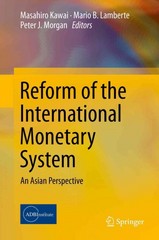economics404
Question 1 Which of the following statements about the UK balance of payments accounts is false? O a) The current balance shows the balance for the trade in goods and services combined. ( b) If a foreign citizen places some money in a deposit in the UK, the accounts regard this as a credit c) If the government's reserves of foreign currencies increase, then there is a minus sign by this item. d) Allowing for errors and omissions the accounts always balance. Question 2 Suppose that one year a country had a balance of trade deficit. Suppose also that the balance for wages, investment income and current transfers was zero. Then which of the following statements is false? a) Borrowing from abroad must have been equal to the trade deficit. ( b) Either investment must have exceeded saving, or government spending exceeded taxes (net of transfers and subsidies), or both. ( c) The country's debt to foreign countries must have grown as a percentage of GDP. ( d) There must have been a surplus on the capital and financing account. Question 3 Which of the following statements is true? 1. The supply curve for sterling on the foreign exchange markets must slope upwards to the right. 2. The demand curve for sterling on the foreign exchange markets must slope downwards to the right. ( a) Both 1 and 2 ( b) 1 only O c) 2 only (d) Neither 1 nor 2 Question 4 Which of the following would cause sterling to depreciate against the US dollar, other things being equal? a) A fall in incomes in the US. () b) News which suggests that prospects for UK firms are improving. O c) A rise in interest rates in the UK. O d) An expected rise in the value of sterling. Question 5 Which of the following exchange rate regimes best describes the situation for both sterling and the euro? O a) A fixed exchange rate regime. ( b) An adjustable peg exchange rate regime. O c) A managed float routine. ( d) A floating exchange rate regime. Question 6 Which of the following statements is false? a) The law of one price says that the prices which producers in different countries set for a particular product will be the same if the prices are expressed in the same currency using the current exchange rate. b) Purchasing power parity is a theory which says that says the total prices of any basket of products which apply in two different countries will be the same if the prices are expressed in the same currency using the current exchange rate. c) Interest rate parity is a theory that the interest rates on similar assets in two countries will be the same.Question 7 Suppose a country has a floating exchange rate and no capital controls. It also has a recessionary gap. It tackles this with an expansionary monetary policy. In the final equilibrium people expect its exchange rate to stay at its new value. Which of the following statements is false? O a) The interest rate will initially fall but must in the end return to its initial value. b) Consumer spending and investment will initially increase, but must in the end return to their initial values. O c) Money demand must end up higher that it was initially. O d) The exchange rate must end up at its initial value. Question 8 Suppose a country has a floating exchange rate and no capital controls, It also has a recessionary gap. It tackles this with an expansionary fiscal policy. In the final equilibrium people expect its exchange rate to stay at its new value. Which of the following statements is false? O a) There will be an initial increase in demand, probably government purchases and consumer spending. b) As demand increases, incomes and money demand start to increase, causing a rise in the interest rate and, in turn, in the exchange rate. c) The interest rate must end up at its initial value, so money demand must return to its original level. O d) Output will end up higher than it was initially. Question 9 Which of the following statements is false? a) If the government wants an expansionary policy in which only consumer spending and government purchases increase, it should combine a fiscal expansion with a monetary expansion. "b) In the event of a demand shock, fiscal policy is powerless to offset the change in demand. c) In the event of a demand shock, monetary policy can be used to offset the change in demand. O d) With either fiscal or monetary policy expansion, the exchange rate initially overshoots its new equilibrium value. Question 10 There are several reasons why the UK government would be cautious about joining the euro. Which of the following is not one of these reasons? O a) The eurozone and the UK might not have well synchronized output gaps over time. ()b) Interest rate changes are thought to affect consumer spending less in the UK than in the eurozone. c) The UK might have to lend or give more money to eurozone countries which run into difficulty








